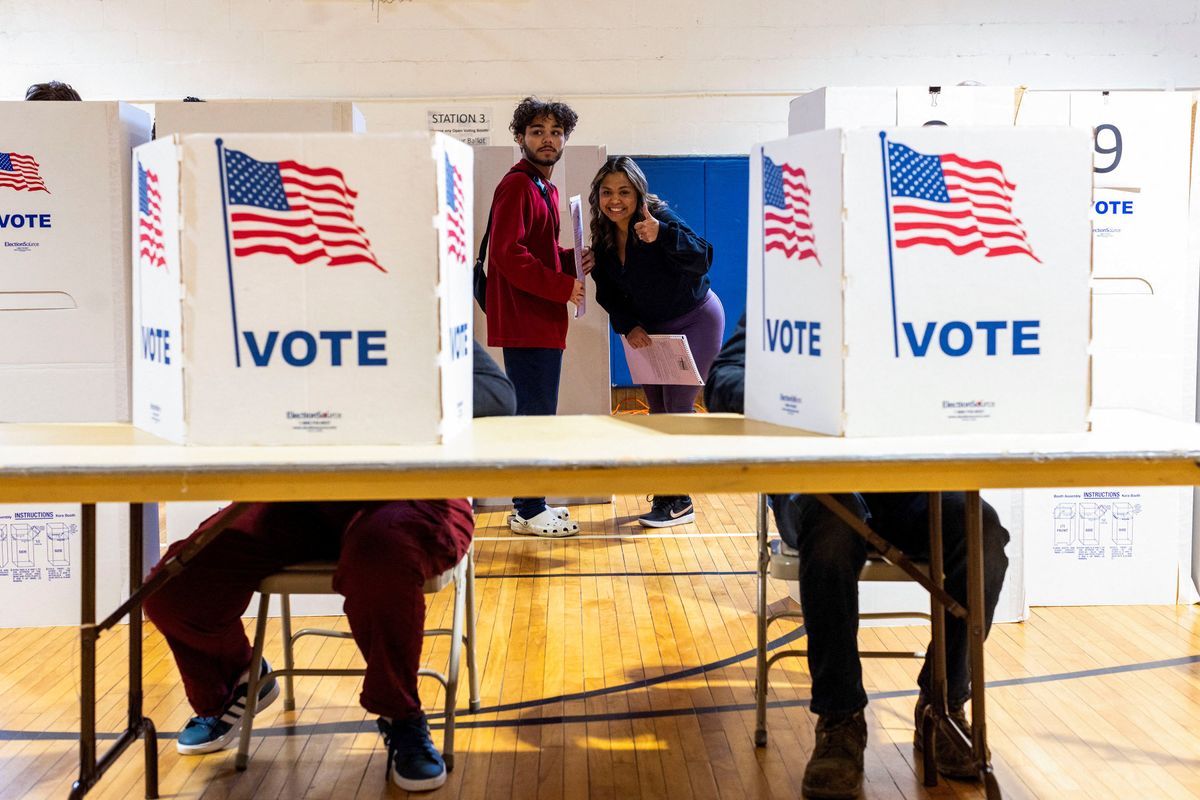
Legal analyst and democracy activist Marc Elias warns that an upcoming April 1 election in Wisconsin could determine the future of all elections.
Writing for Democracy Docket, Elias stated that key state Supreme Court seats will decide whether judges who rule on voting rights cases continue to do so. Among the cases that previously went before the court was a law "with strict Voter ID requirements" that would have been enshrined in the state constitution.
If the majority holds, the court will be safe until at least 2028, when pro-voting rights Justice Rebecca Frank Dullet is up for reelection.
"The Court currently has a 4-3 liberal majority, and liberal Justice Ann Walsh Bradley is retiring, so her seat is up in April," said Elias.
ALSO READ: Revealed: The secret Republican plot to disenfranchise millions of voters
He cited two existing judges who will run for the seat, "Susan Crawford, a liberal judge for the Dane County Circuit Court, and Brad Schimel, a conservative judge for the Waukesha County Circuit and former Republican state attorney general."
He listed Crawford's credentials, including endorsements from 134 other judges and the four other judges on the court. Schimel has endorsements from former sheriffs.
In 2023, the election became national news when Justice Janet Protasiewicz flipped the control of the court ahead of a ruling on "the state’s unfair legislative maps," said Elias. Turnout for the election was the state's highest ever for an off-election year judicial race.
Republicans responded to the election by arguing that lawmakers should impeach Protasiewicz before she heard a single case. The Republican state House Speaker ultimately backed down from the impeachment threats.
Elias recalled that Protasiewicz's election was a decision that state Democratic Party chair Ben Wikler championed, saying, "[t]he long, dark night of ultra-partisan gerrymandering is over, and a new day for democracy now dawns in the Badger State."
Another important issue Elias noted that will be on the ballot is the state's "strict" voter ID law, which was previously passed by a ballot measure. At the time, Jay Heck, executive director of Common Cause, called it “one of the most extreme and restrictive voter photo ID laws in the country.”
The upcoming vote will determine whether the law is enshrined in the state's constitution.
Heck also said that the state Supreme Court may take up the matter in the future to decide the constitutionality. However, if the voters approve it, that will become moot.




